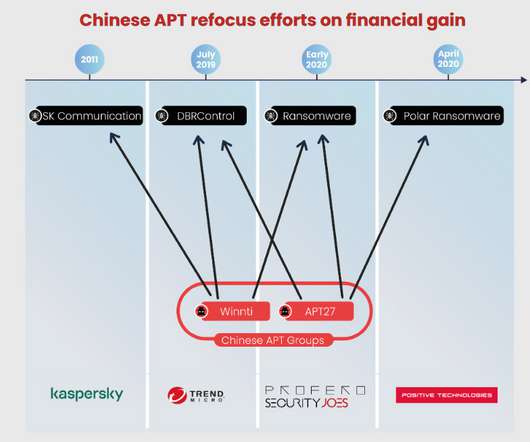Experts linked ransomware attacks to China-linked APT27
Security Affairs
JANUARY 4, 2021
The APT group has been active since 2010, targeted organizations worldwide, including U.S. The group was involved in cyber espionage campaigns aimed at new generation weapons and in surveillance activities on dissidents and other civilian groups. The hackers used the Windows drive encryption tool BitLocker to lock the servers.












Let's personalize your content